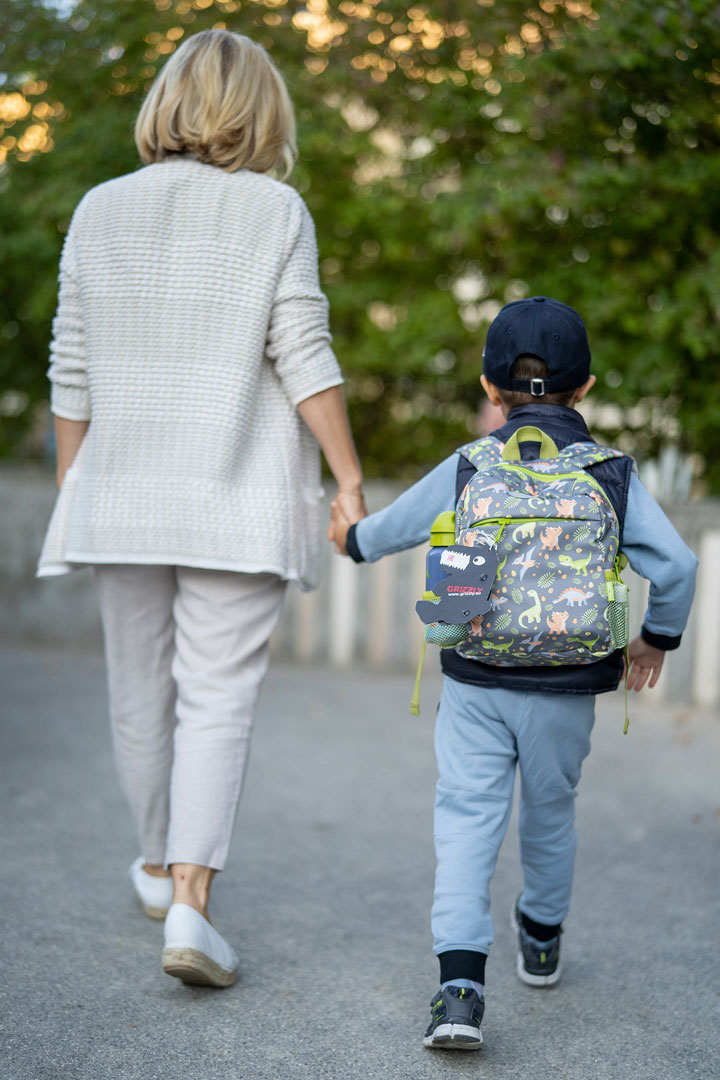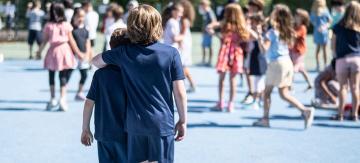The Foundation of the Ecole Internationale de Genève (hereinafter Ecolint) subscribes to the Convention on the Rights of the Child, of which the host country Switzerland is a State party, and commits to promoting and defending the rights of its students to physical and psychological safety and wellbeing.
Our Safeguarding & Child Protection Handbook undergoes annual review, and all staff members reaffirm their commitment by signing our Code of Conduct each year.
Full S&CP Handbook S&CP Policy S&CP Procedures S&CP Code of conduct
Understanding Child protection
Child protection refers to Ecolint’s legal obligation – deriving from Swiss federal and cantonal law – to act to protect a pupil/student up to the age of 18 from a situation that is causing actual or potential harm to the child's physical and mental health, survival, and overall development.
How is it different from Safeguarding?
Child safeguarding refers to the responsibility of Ecolint to take proactive measures to keep all its students safe. Child safeguarding encompasses preventing and minimising the risks of all forms of maltreatment including physical, emotional, sexual violence and neglect.

Ecolint Safeguarding and Child Protection Handbook
Ecolint Safeguarding and Child Protection Handbook applies to all employees of Ecolint, including teaching and non-teaching staff, support staff, contract staff, third-party providers, consultants, volunteers and any other adults working at and visiting the School.
The Handbook applies to all children and adults in the school, including when being educated off-site and undertaking educational visits. It also applies to students on an exchange and being hosted by the School or Ecolint students on overseas trips.
The Handbook includes a Code of Conduct for staff members, third-party providers, consultants and volunteers. This Code of Conduct, alongside supplementary Safeguarding guidelines on appropriate Student-Adult boundaries are designed to clarify the expected behaviours and essential agreements related to the professional and personal conduct of anyone who could be expected to have contact with Ecolint students.
Ensuring child safety: Reporting protocol
Ecolint takes child protection concerns seriously. At Ecolint, safeguarding and child protection is everyone's responsibility. Hence, all the members of our community have a duty to report child protection concerns while maintaining utmost confidentiality.
What to report
All suspected situations of child abuse, occurring in the school, outside the school and at home, by adults, caregivers, as well as children.
Child abuse refers to all forms of maltreatment that occurs to children under 18 years of age. It includes all types of physical, emotional and sexual abuse, and neglect which results in actual or potential harm to the child's physical and mental health, survival, and overall development.
Child-on-child abuse is considered a child protection concern, it can encompass all those categories of abuse. It includes but may not be limited to hazing, coercive control, discrimination and identity-based harm, bullying/cyberbullying, sexting, sexual harassment and assault.
How to report
Each campus maintains a designated email address for reporting child protection concerns, managed by the respective Campus Principals, who serve as the School-Designated Safeguarding Leads. These email addresses ensure a structured system for recording, addressing and archiving reported concerns.
The e-mail addresses are the following:
La Grande Boissière reporting email:
safeguarding.lgb@ecolint.ch
La Châtaigneraie reporting email:
safeguarding.cha@ecolint.ch
Campus des Nations reporting email:
safeguarding.nat@ecolint.ch
Reporting e-mail requirements
Include the child's name, school and class/year group, the reporting individual's name, role, and affiliation with the school, along with specific and factual details regarding the concern, such as date, time, location, and verbatim statements made by the child or adult disclosing the concern. Avoid including photographs, interpretations, judgments, or conjectures in the report.
Seeking assistance
If uncertain about reporting a concern, community members are encouraged to reach out to the pastoral team, comprising teachers, head of years, nurses, psychologists, assistant principals, and the principal. This trained team is readily available to provide guidance and support.
What happens after reporting?
We respond to child protection concerns by putting the child’s best interest at the centre of all our decisions and actions.
A designated team, comprising the School Principal (School Designated Safeguarding Lead), school nurses, and school psychologists, known as the Groupe de Référence (GDR), is responsible for managing reported child protection concerns.
Depending on the severity of the concern, the GDR classifies the concern into one of four levels, each dictating appropriate support measures:
Level P – Level 1 cases are classified as “P cases” - P for Pastoral - when the GDR decides that there are insufficient grounds for child protection concerns and assigns the case to the pastoral care team of the school for follow-up.
Level 1 – A concern about a behaviour of Ecolint employees, parents and/or peers which could put children in a vulnerable situation but which does not constitute an immediate danger or risk for the children or adults.
Level 2 – An escalated concern or an allegation of repeated inappropriate behaviour of Ecolint employees, parents and/or peers, or behaviour which puts children in a position of significant or immediate danger, such as would require immediate referral to medical professionals (Hospital) or the Child Protection Authorities and/or the Police.
Level 3 – All present or past concerns raised/allegations made concerning gross misconduct by an Ecolint staff member or all concerns raised that may involve legal actions. This includes historical cases disclosing alleged criminal activity, and/or ongoing risk of harm to the victim or other children in Ecolint.
The level of concern attributed determines the procedures that will take place to support the child in danger, including the involvement of internal and/or external responsible persons and bodies.
